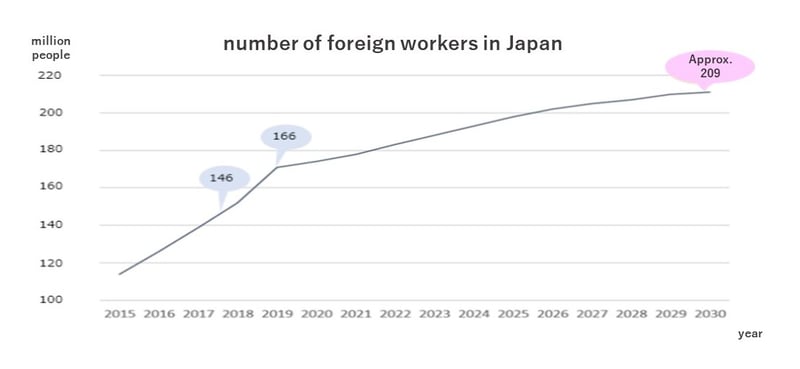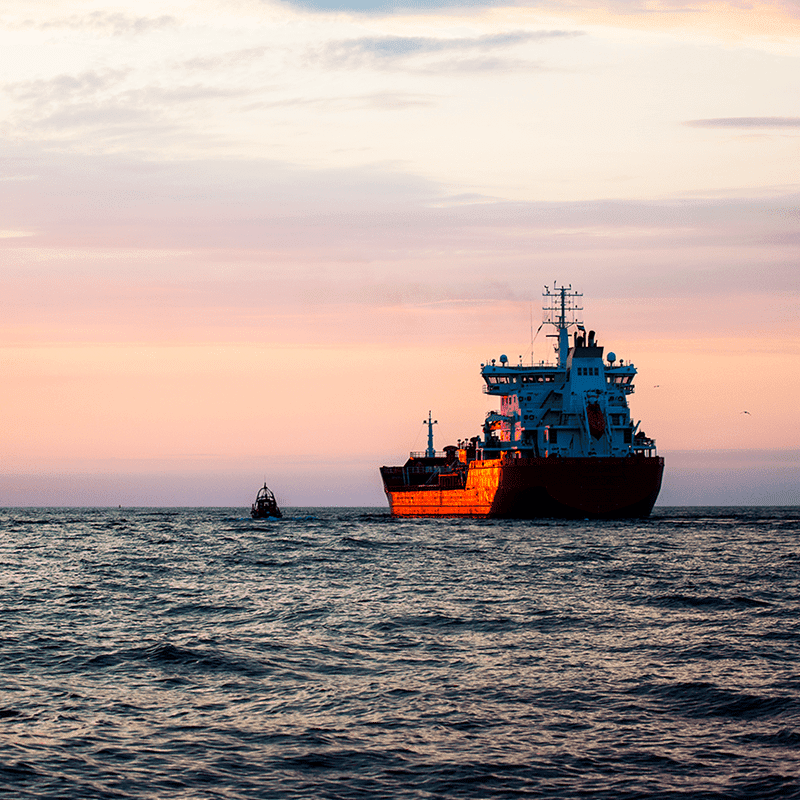BLOG
For those who are considering recruiting Global Human Resources
- Others
2021.09.07
In April 2020, Mitsui O.S.K. Lines, Ltd. (MOL), a multimodal transport group, launched a recruitment and consulting service business specializing in foreign personnel. In this article, we will explain why MOL has started a business that does not seem to be related to shipping, along with its history and changes in the external environment.
Foreign Seafarers of ocean-going vessels
The number of ocean-going vessels operated by Japanese shipping companies is about 3,900, making it the second largest ship-owning country in the world, second only to Greece. Did you know that most of the crews aboard these ocean-going vessels are foreigners, not Japanese? In the early 1970s, there were more than 50,000 Japanese seafarers on board ocean-going ships. However, the demand for foreign seafarers has been gradually increasing. Today, the number of Japanese seafarers has fallen to about 2,000, which is only 3.5% of the total. On the other hand, the number of Filipino seafarers is currently about 40,000 which is 75% of the total number, while other Asians such as Indians, Chinese and Indonesians account for 20% of the total. As can be seen, Japan is now largely dependent on foreign seafarers.
For more information, see this article: Seafarers Essential to Maritime Transport
Long history of MOL and the Philippines
As foreign seafarers are now the core of the crews on MOL owned vessels, it has become necessary to secure a stable workforce and maintain a certain level of skill required for safe operations. In this context, MOL, together with its local partner Magsaysay Group, has long been dedicated to the education and training of seafarers in the Philippines. Magsaysay Group is a company with a long history rooted in the Philippines, and has even produced a Filipino president in its past. MOL has been cooperating widely with Magsaysay Group since the 1980s, when it started assigning Filipino seafarers to its ships. We have been working together, such as, establishment of seafarer training arm, the Magsaysay Institute of Shipping (MIS) in 1993 and the establishment and management of a boarding maritime academy, MOL Magsaysay Maritime Academy (MMMA), in 2018. Seafarers who have received seafarer training operated by these two companies are able to demonstrate the high safety standards required in our ship operations.
Magsaysay Group sends Filipinos around the world for a wide range of jobs, not just as seafarers, and they have built one of the best track records and brands in the Philippines in the recruitment business.
.jpg?width=588&height=377&name=Magsaysay%E3%82%B0%E3%83%AB%E3%83%BC%E3%83%97%E3%81%AE%E3%83%95%E3%82%A3%E3%83%AA%E3%83%94%E3%83%B3%E4%BA%BA%E7%B4%B9%E4%BB%8B%E6%95%B0(2018%E5%B9%B4%E6%99%82%E7%82%B9).jpg) The number of Filipino recruits at the Magsaysay Group (as of 2018)
The number of Filipino recruits at the Magsaysay Group (as of 2018)
Domestic labor shortage in Japan

Source: Ministry of Health, Labour and Welfare
Created by MOL
Procedures required for hiring foreign human resources
So, what kind of procedures are required when hiring foreign workers? Broadly speaking, the following steps are taken before and after offers:
<Before Offer>
・Consideration and presentation of required personnel conditions (ex. Nationality Selection, Japanese Language Level,
Background, etc.)
・Consideration of local education before entering Japan
(ex. Selection of educational facilities)
・Conduct interviews with candidates
<After Offer>
・Procedures in the home country.
(In the case of the Philippines: POEA = Procedures with Philippine Overseas Employment Administration.)
・Procedures in Japan (ex. Obtaining status of residence).
・Improving the livelihoods of workers (ex. native language support available 24/7, housing support, etc.).
・Support to increase the stability of workers.
Depending on the issues and situations faced by companies, MOL offers consulting services such as the implementation of local training using our educational facilities, pre-screening of candidates to find the most suitable foreign human resources, and offering the option to undertake procedures after offers. In addition, we will provide regular interviews with companies and employers and prepare reports as necessary in order to increase the stability of workers after their employment. We will do our best to make the process as efficient and stress-free as possible, while respecting your company’s goals in hiring foreign talent.
We have also prepared material that summarizes the recruitment process and the characteristics of the human resources, focusing on Filipinos. If you are interested, please download it below. (Of course, we are happy to discuss other nationalities as well.)
First of all, Try to envision…
"We have enough human resources now. But in 10 years from now, will it really be possible to maintain the current status?"
"We have a business plan to expand our business overseas in the future, but do we have enough appropriate human resources to do that?"
"Are we really prepared for the inbound demand after COVID-19?"
"Are we able to globalize and revitalize our company in order to survive the changing times?"If you have any concerns, please feel free to contact us.
We will support you to clear up any anxiety and lead you to a solution. MOL will provide consulting services for foreign human resources that goes beyond recruitment and helps your company from a medium to long-term perspective.

Writer:Rumi
Joined the company in 2014. After working in charge of Iron Ore and Coal Carrier ship operation, I have been involved in new business creation since 2017.The shortage of human resources in the wind power generation field, led me to establish a foreign human resources consulting business. "A drink after work" is my bliss time. As I started to work at home more and more, I took on the challenge of changing my favorite beer to vinegar. I was seriously worried by my parents, who are drinkers.
Recommended Articles
2022.07.05
- General Shipping
2021.04.13
- Energy
2025.03.18
- General Shipping
2021.08.07
- Eco Friendly
Latest Articles
2026.02.02
- Eco Friendly
- General Shipping
2026.01.20
- Eco Friendly
- General Shipping








